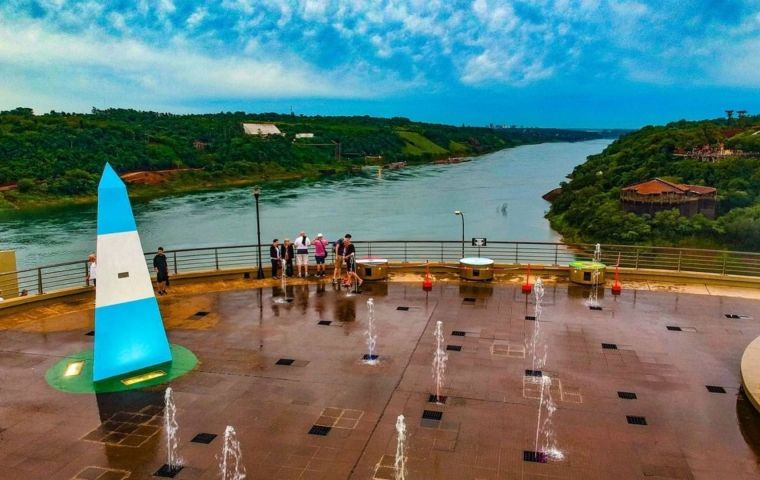MercoPress. South Atlantic News Agency
Argentina raises alert level over possible presence of Iranian agents
 In addition to the Triple Frontier, authorities know they need to keep an eye on the Bolivian border given that country's ties with Iran
In addition to the Triple Frontier, authorities know they need to keep an eye on the Bolivian border given that country's ties with Iran Argentine authorities have upped the security measures around the so-called Triple Frontier encompassing Puerto Iguazú (Argentina), Foz do Iguaçú (Brazil), and Ciudad del Este (Paraguay) out of concerns over the possible entry of Iranian agents, in addition to the suspected presence of Hezbollah “sleeper cells” in the country.
The measure followed intelligence reports about an unregistered Iranian official entering the country, particularly after former Iranian Vice President Shahram Dabiri was found to have entered the country undetected on a tourist visa in March.
Foz do Iguaçú and Ciudad del Este are known to host Hezbollah “sleeper cells,” reportedly involved in illicit financial activities. There are concerns that funds collected from merchants linked to the group are being funneled to Iran, disguised as humanitarian aid.
The Triple Frontier has historically been a permeable point for dangerous individuals, with suspicions that the perpetrators of the 1992 Israeli Embassy and 1994 Argentine Israeli Mutual Association (AMIA) bombings in Buenos Aires entered through this area. Notorious alleged Hezbollah “treasurer” Assad Ahmad Barakat also operated freely in the region before his 2018 arrest. In 2006, the US Treasury Department described Barakat as a “global terrorist,” and added him to a list of people in the Triple Frontier area who help finance Hezbollah, whose assets were frozen.
In this scenario, Argentine immigration security teams are being reorganized with a focus on the international base set up in Puerto Iguazú, in collaboration with Brazil and Paraguay, with support from the US Federal Bureau of Investigation (FBI).
Additionally, over 300 federal agents have been deployed to Bernardo de Irigoyen and will progressively move to Puerto Iguazú.
While Security Minister Patricia Bullrich has implemented the Unified Command Guacurarí to coordinate federal and provincial security resources, Defense Minister Luis Petri signed a military cooperation agreement with Paraguay to enhance border security and combat organized crime.
Concerns also extend to potential Iranian infiltration in Latin America, particularly on the Bolivian border, given that country's ties with Iran. AMIA President Osvaldo Armoza has emphasized the need for a firm regional response to these threats.




Top Comments
Disclaimer & comment rulesCommenting for this story is now closed.
If you have a Facebook account, become a fan and comment on our Facebook Page!